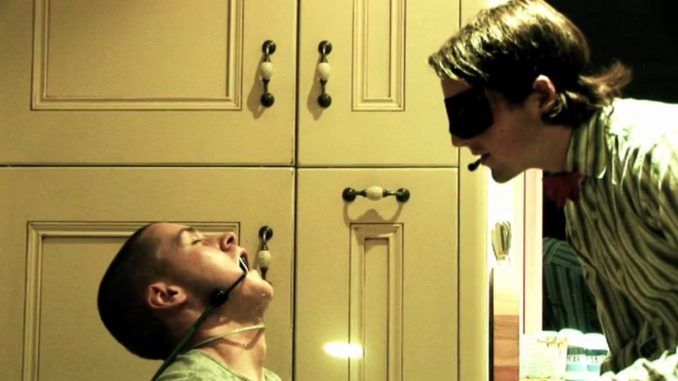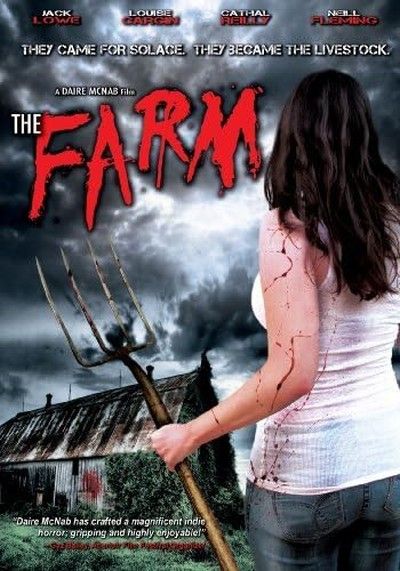
Rating: D+
Dir: Dáire McNab
Star: Louise Cargin, Jack Lowe, Cathal Reilly, Robert D. Donohoe
Oddly, I seem to have seen quite a few of this kind of movie lately, where criminals on the run take refuge on a farm, only to find themselves in more peril than they were before. Both The Price We Pay and Bloody Hell went down more or less similar lines, but this got there a good decade before either of them. Not that anyone noticed, going by the forty-three (43) ratings this has received on the IMDb at the time of writing. I can understand why because, while the ideas here aren’t bad, the execution of them is almost entirely inept. Indeed, if you wanted a primer on how a low-budget film can go wrong, this would do the job.
It begins reasonably well, with low-level criminals Mickey (Lowe) and Charlie (Donohoe) being ordered by their boss to abduct a man and bring him back. While they initially do so, Mickey ends up rebelling, and guns down both their boss and the hostage. This all takes place inside the opening fifteen minutes, so credit is due for not hanging around, at least. Mickey goes on the run with the money, pausing only to pick up his girlfriend, Juliet (Cargin) They plan to head out of Ireland on a ferry, and first spend the night at a farmhouse run by the simple-minded John (Reilly). He mistakes Juliet’s friendliness for something more, with Mickey bashed on the head and locked up in an outbuilding. Things only go downhill from there.
 There is so much here which appears almost deliberately calculated to annoy me. A camera which won’t sit still for the most mundane of scenes. Audio that veers wildly in volume, and not only the dialogue. Just before the end credits, a song swells on the soundtrack and SWELLS and SWELLS; though quite when you lunge for the remote-control may vary, trust me – you will. Then there’s an excess of gratuitous, green tinged night-vision, even in sequences such as near the end, when Juliet is being pursued by John and it’s obviously still daylight. The urge to build a time-machine, go back fifteen years, shake the director warmly by the throat and scream “WHY?” at him, was considerable.
There is so much here which appears almost deliberately calculated to annoy me. A camera which won’t sit still for the most mundane of scenes. Audio that veers wildly in volume, and not only the dialogue. Just before the end credits, a song swells on the soundtrack and SWELLS and SWELLS; though quite when you lunge for the remote-control may vary, trust me – you will. Then there’s an excess of gratuitous, green tinged night-vision, even in sequences such as near the end, when Juliet is being pursued by John and it’s obviously still daylight. The urge to build a time-machine, go back fifteen years, shake the director warmly by the throat and scream “WHY?” at him, was considerable.
Cargin is the only one whose performance reaches acceptable quality, and this may be a result of the film not making any great demands of her. Lowe is fine in the early going, when the plot is galloping forward at a quick enough pace to cover the defects. When it eventually slows, his limitations become more apparent. I’m not sure whether or not Reilly was genuinely attempting to play John as mentally disabled, or if that is what passes for an acting style in the world of Irish micro-budget cinema. I note, without further comment, that Reilly’s only other IMDb credit came three years later as, and I quote, “Passed-out cokehead”, in another Dáire McNab feature. I will not be rushing to track this down.
